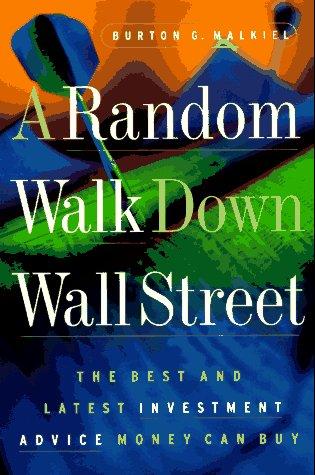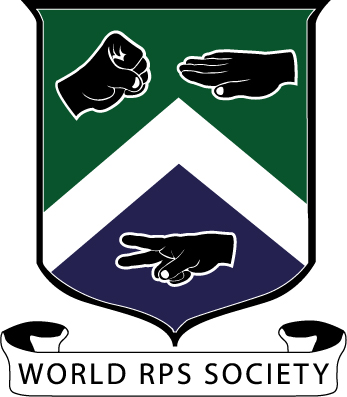November 30, 2006A RoShamBo Walk
Peter Lynch, investment cowboy and famous prior pilot of the Magellan ship suggested famously "invest in what you know." But William Sharpe, investment professor and Nobel-winning inventor of the theory of efficient capital markets countered, "attempts to beat the market carry the seeds of their own destruction." Who is right? You Can't Beat the Market After years of study, academics have basically come to the conclusion that you can't beat the market. They tell us that we'd all be best off putting all our savings into index funds and then keeping our grubby little active-trading hands off the money to reduce costs. This point of view is popularized in Burton Malkiel's investment bible A Random Walk Down Wall Street. What that book points out is that, as far as academics can tell, not only is it impossible to discover a mechanical way to "beat the market" over the long haul, it is also impossible to discover (ahead of time) which human investment expert might be able to beat the market consistently. Malkiel famously suggests throwing darts at the stock tables would be better than buying an actively managed mutual fund. Why? Simple: because if there were a way to beat the market even 51% of the time, then every rational investor would leverage all their money into that winning strategy - they would all buy Dogs of the Dow or pile into T. Rowe Price mutual funds or buy Berkshire Hathaway or read Value Line or whatever. The resulting stampede of money would bid up the cost of investing with that approach until it no longer beat the market at all. So in a rational world, there is no free lunch. You are best off reducing your risks by spreading your bets as widely as possible, and maximizing returns by minimizing costs as much as possible. In other words, we should not invest in anything other than index funds and cash.
But I always like to ask a question about this approach. What happens when nobody is driving the bus anymore? If everybody just hops on to the indexing bus and takes their hands off the steering wheel to reduce costs, what happens when every last person finally decides take their hands off the steering wheel? Who sets prices then? Will we achieve some market singularity in 2100 when all money is indexed and capital markets cease functioning? If nobody is driving, can we expect anything other than a big crash? Or maybe just the smart, rational people use indexing. So what happens if all the rational people decide to let go of the steering wheel, leaving a few irrational people in charge of setting market prices? Is it possible to beat a market if the prices are set by idiots? No Better than Childs' Play Have you ever played Rock-Paper-Scissors? That's the funny kids game - known in some quarters as Rochambeu - where you form your fingers into the shape of an object in the hope of trumping your opponent's shape, thrown at the same time. A recent internet phenomenon has been the invention of "higher order" rock-paper scissors games that introduce larger numbers of fair moves, like RPSSL and RPS-7 and even RPS-101. Good luck keeping those all fingers straight. Regardless of the number of symbols, the only non-losing strategy in RPS is to have no strategy. If you play rock-paper-scissors with a pattern (for example, "always play rock"), then you will be beatable. The only player that is impossible to beat is the perfectly random player. For this reason, in Japan, rock-paper-scissors is commonly used where we might use a coin toss in the States. In efficient market theory, Malkiel and Sharpe tell us that investing in non-diversified vehicles is like playing good ole' rock. It is better not to play, or to at least to play randomly. Is that really true? Dan Egnor Beats RoShamBo
One smart guy around here is Dan Egnor. What floors me about Dan is not the fact that he is a remarkable programmer - he is that, true enough. What floors me is that back in 1999, Dan wrote an algorithm to beat the rock-paper-scissors game. And he didn't just beat the other algorithms randomly. When pitted against of fifty-four other competitors at 1000-throw rounds of RPS at The First International RoShamBo Programming Competition, Dan's algorithm came out ahead in all 54 games. And not only did it win the first year's competition; the same program placed 3rd of 64 in the second year's competition despite being pitted against programmers who had access to the source code for Dan's program. The winner the second year was actually based directly on Dan's original. The only way to really understand how Dan totally trounced the competition is to study Dan's explanation and the elegantly short source code for his algorithm. Yes, he did it all without cheating. The basic idea is that Dan figured out a way to second-guess every conceivable second-guessing algorithm by analyzing the history of play. His program is very good at beating other programs, even programs that are trying to second-guess it back. The program is named Iocaine Powder in honor of the poison used by the hero in The Princess Bride to outwit the evil genius. Now, Dan's program can't reliably beat a random program. No program can reliably beat the random algorithm in RPS. But Dan did not need to beat a neutral random program, because nobody played purely randomly in the contest. Why not? Because while a random algorithm is guaranteed to win half the time, it is also guaranteed to lose half the time. If there is even a single non-random participant among many random players, it should be possible to recognize it, then beat it and win the competition. So a rational player who thinks they can outsmart non-random players will play non-randomly. So all the contestants thought they were smart, and they all entered non-random players. And against a field of non-random opponents, Dan can win basically all the time. Surely Dan's success is a proof about the (non?) existence of God. Or at least it is suggestive that Sharpe and Malkiel might be wrong about the infallibility of the invisible hand of the markets. If it is possible to reliably beat other rational programmers at a perfectly neutral game like RPS where there is nothing but second-guessing, shouldn't it be possible to beat other investors when there is plenty of interesting information floating around? In a rational world where randomness seems to rule supreme, might it actually be possible to be above average? Or are we all fools, waiting to be duped by Dan? Posted by David at November 30, 2006 05:30 PMComments
Hm. I'm a big fan of Malkiel and of Jeremy Siegel. I get what you are saying about taking history and using it to outwit the market. However, RPS is a fairly simple game. Economics and the stock market take a lot more inputs to second guess what's going on. Even then, 3 to 6 months after a recession, the Conference Board is still trying to figure out if there WAS a recession. With incomplete data like that, how can you keep on guessing? Your inputs keep on changing and data that's 6 months old have no bearing really on the next 6 months. (Oh geez, I sound like a prospectus!) Try reading Jeremy Siegel and John Bogle. They'll convince you that indexing is the best way to go. And Vanguard has those nice low fees to boot. Posted by: mapgirl at December 22, 2006 12:09 AMYeah, I'm thinking about the RoShamBo competition not because I think Sharpe and Malkiel are wrong, but really because I think it is so hilarious that you can actually win at rock-paper-scissors. And it is hard to resist superimposing this fact on the apparent (occasional) stupid shortsightedness of the markets. But yes, having read the orthodoxy, I do have most of my money split between VTI and cash. I guess I have some real estate (my house) too. OTOH, I have long been concerned that the VTI/cash/real estate is too U.S.-centric. We waste too much of our capital in the U.S. on borrowing for consumer goods, and economies overseas (I'm thinking about Asia) that do a better job investing in the future will probably grow faster than we do. And their currencies will probably be stronger in the long run too. I am also worried about indexing money internationally because international markets seem too inefficient and problematic for various reasons. I like to invest in "companies where I would like to work," but China is a whole country in which I'm not sure I would want to live, so I am uncomfortable putting my money there. I am also skeptical of the superconservative herd mentality that seems to characterize Japanese investment culture. South Korea lives under the sword of the North; Taiwan is on the tip of the spear from the Mainland. So I wonder about these systematic risks, and I wonder whether indexing is the right approach internationally. I think about RoShamBo, and I think that, if you think independently, you might be able to beat a market where everybody else is making shared, systematic mistakes. So I have been on the hunt for individual stocks to buy in Japan. Let me know if you have any ideas... Posted by: David at December 22, 2006 08:25 PMPost a comment
|
| Copyright 2006 © David Bau. All Rights Reserved. |

 The Self Driving Bus?
The Self Driving Bus?